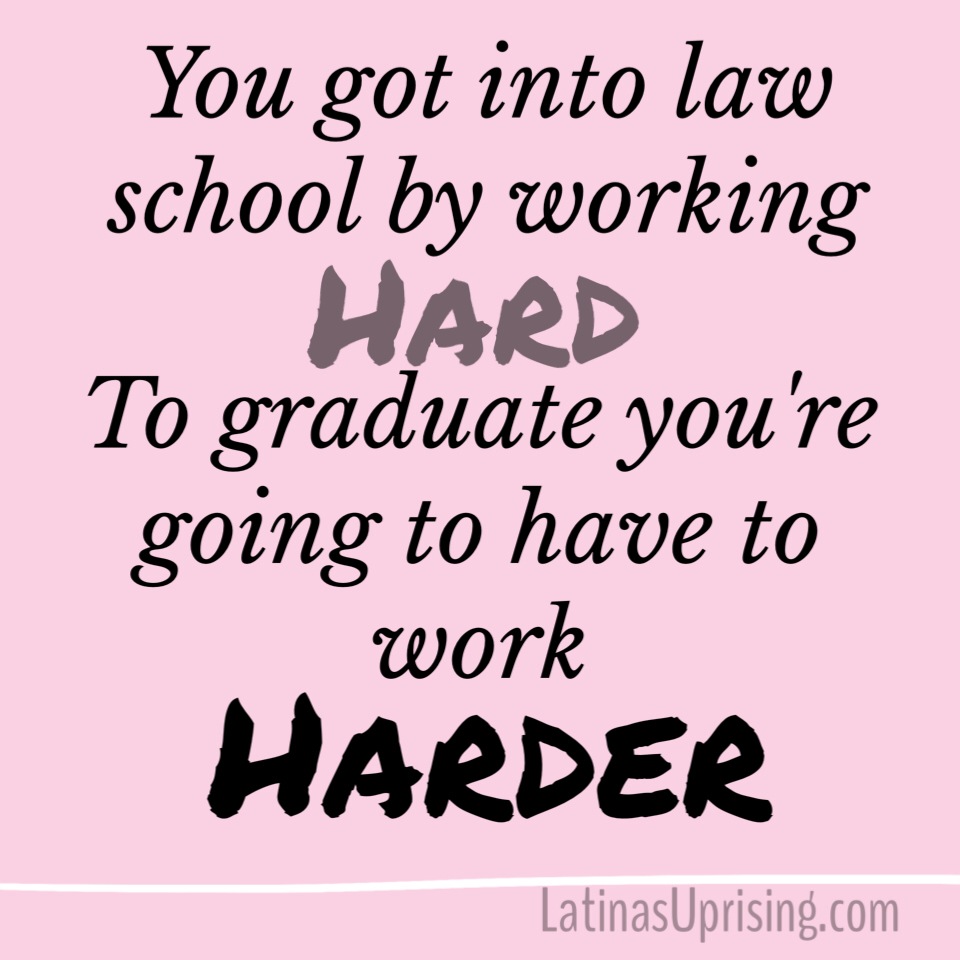Not so Great Grades and Law School
Grades are in for many people, and others are anxiously awaiting the final verdict. Today’s post isn’t very happy because it’s about dealing with the aftermath of not-so-great grades (“NSG grades”). First, NSG grades happen, so please don’t be too down on yourself. Remember that law school is usually graded on a curve, and it’s based on one anonymous test graded by one person. This one grade doesn’t signify your worth or your capabilities in school, or as a future attorney.
But unfortunately, the reality is that many people will not get the grades they expected, and for all those usually straight-A students, these grades may be the worst you’ve ever earned. I remember getting a NSG grade my first semester and it sucked. Big time It was embarrassing and emotionally depleting. I questioned my goals, my plans, and worried about what it meant for my future. It took a while for me to get over it, and I fear that wallowing in self-pity made me lose sight of the big picture.
You should try to avoid that because it doesn’t help anything! Instead, another option is to use the NSG grades as a guide to self-improvement. I know, maybe this seems too polly-anna, but what are your other options? You can’t give up, so instead use this as a sign to work smarter and grow.
So what can you do?
One. Take a day. Take just one day to be super bummed. Sleep in, eat junk food, watch TV, cry–whatever you need. But limit yourself to just one day, because after that it’s just too long to worry about things you can no longer change.
Two. Take stock. Really, truly and with a critical eye review how you studied. Did you study with distractions in the background? Did you still go out more than you should have? Did you miss review sessions? Did you surf the internet during lecture? It’s important to be honest and admit that when some of our habits just aren’t conducive to good grades. In my case, I realized that I needed to be more present during my lectures, so I did something radical. I put away my laptop. Yes, I know! No more internet for me during class. Instead, I decided to take only hand-written notes during lectures. My understanding of subjects soared. Was I bored in lecture some days? Hell yes. But I became a master doodler and never looked back because understanding the topic became my goal–not reading Perez Hilton (give me a break, it was 2008!).
Three. Use all your resources. The first step to this may mean swallowing your pride. I know I had to do this when it came to realizing that my original way wasn’t the best way for me anymore and need to get help and advice from others. But once you’re over that, then discover what your school has to offer and take advantage of it. Can you meet with your professors to review your answers? Then do so. Do you have teaching assistants with open hours? Visit them. Do professors offer review sessions at the end of semesters? Attend them. Are you confused during class? Ask questions during lectures, or visit professors during their open hours, or at minimum, email them for clarification.
The key in all of this is determine exactly where you need to put in more work. Too many of our peers will act like getting good grades isn’t difficult and that it doesn’t take hard work (law school is a mind game after all). But we know that’s not true. Many people will put on a charade like it is easy and that may make you feel as if you’re incompetent for needing to try. Don’t fall trap to this game! You do you, and always remember that you got into law school by working hard; so to graduate you’re going to have to work harder and smarter to achieve big things. There’s no shame in that; in fact, you should feel pride in your ability to learn from mistakes, and propel yourself forward.

